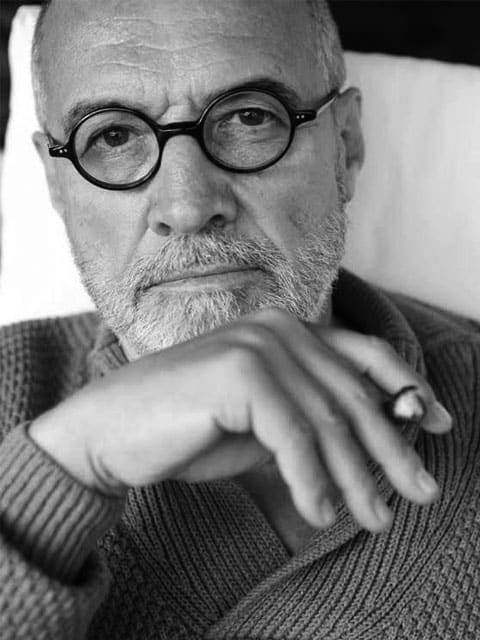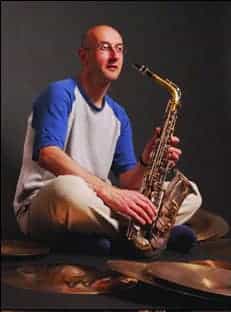Britain’s ‘finest opera critic’ retires
mainThe Telegraph has announced that Rupert Christiansen will be stepping down as opera critic this month. Christiansen, 66, was hired in the mid-1990s boom from the Spectator.
Chris Evans, the Telegraph’s editor, said: ‘Rupert Christiansen is the finest opera critic in the land and our readers have enjoyed his reviews for the past 25 years. We will miss him and wish him well for the future.’

No replacement has been named.
Rupert explains his decision here.





With each retirement, whether voluntary or enforced, the place of classical music criticism is further downgraded in the the media. The same can be said by for most of what were staples of the ‘old’ media where erudition is replaced by ignorance. No doubt whoever replaces him will see this fussy old fashioned oddity as in desperate need of being made more diverse and accessible to an audience that more than likely is not interested in the least. Rather like those in whom the medium is now entrusted, the sine qua non for appointments nowadays. Meanwhile, Mr Christiansen will hopefully still be around to share his, nowadays ‘reactionary’, views with us.
This site often reads like an old peoples’ home conversation full of classical bores. Oh everything is worse now: it was better in the old days, when classical music was reserved for the intelligentsia, a private club of smirks and knowing looks, nice men on Radio 3, poncing around in the crush bar crowing about Sutherland and Callas versus the ghastly girl who’s singing tonight…
What a yawn.
People retire, things change. The Telegraph has become the Daily Mail for pretentious people who can’t bring themselves to buy the Daily Mail. I doubt whether opera is high on its list of priorities these days.
Not much for him to do anyway at the moment….
Better late than never…
Did he ever sing, coach, play an instrument, conduct, direct, compose, organise performances?
Or just write about things that he couldn’t do?
That is a singularly ignorant remark by someone who clearly has no comprehension of the history of the art of criticism.
V.Lind: Is criticism an art?
https://www.google.com/search?client=safari&rls=en&q=kreisler+musikkritiker+text&ie=UTF-8&oe=UTF-8
It is an apt proffered pair of questions, justifiably also to be leveled at the large majority of operatic stage directors and administrators, in today’s times. Questioning the foregoing is ignorant; but ignorant of simple, irrefutable fact. No hurt feelings, please, for the retirement of such deleteriously ignorant denizens of the opera business. Let’s all instead hope the door doesn’t hit his backside on the way out.
This is an old, sad, weary, unoriginal attack on criticism. What matters is not what a critic can’t do, but what he or she can do. The art is to write about a performance or performer (or e.g. disc, or book, or movie, or play, or art exhibition) intelligently, knowledgeably, with discernment, and entertainingly — and keep to a deadline. If a fifty or a hundred years or so after the writer’s death the work can still be read with profit and enjoyment (Shaw, Cardus, Berlioz …), so much the better.
Nothing about the once estimable Telegraph is now “the finest in the land”.
That is a loss. And Billington is gone at the Guardian, leaving Theatre also without a critic of great stature.
These are among the last of the survivors who grew up with a tradition of great criticism that stretched back to the 18th century. The younger ones have grown up with a history of opinions on websites, on Twatter and BTL commentary. They will not have read Shaw or Tynan or Cardus, and they come from an era without reference or regard for history — they will not even have read Shakespeare or listened to the music of the periods surrounding the operas they will review. Context and analysis are unknown to them. “Feeling” is all.
Yeah? Citation needed.
None needed; you just need to witness the vacuity of the reviews.
Billington is a loss. Have you read any reviews by the person who replaced him? They are almost comically ignorant & inept. I only very occasionally read them and then only for a laugh.
Without speaking to him privately, it’s hard to know whether this is him choosing to step down, or the Telegraph axing a key part of its art coverage. I fear the latter.
He was, for me, far too reactionary when it came to opera production, and his hostility to ENO at a time when musical and production values were so high was absurd. A sort of Beckmesser de nos jours………….
Cobblers. He was keen that ENO should hire and develop British singers. And averse to silly Regietheater excess. But reactionary? Hardly! A classical liberal.
Hurrah!!!
“Finest”???…
At his best, his reviews could be very good but these were too rare. I found too many of his reviews unreliable and demonstrated prejudices; his dislike of Philip Glass music, for instance, begged the question as to why someone else was not sent for the review. For many years, his comments about ENO, sometimes when reviewing elsewhere, were vindictive and showed a lack of professionalism. He was, though, the one critic who captured the essence of Callas last London concert in describing it as ‘ disappointing but exciting’. He was much better when writing about opera or reviewing singers and, to me, that was where his talent was demonstrated.
Rupert was (is!) a fine critic, and whilst I don’t agree slavishly with his every word (why must I?) he broadly spoke common-sense and sometimes necessarily punctured some pompous egos.
I’m thankful for his contribution, and wish him well for the future.
Let’s hope he is not replaced by one of those tiresome nonentities with zero personality, depth or opinion, such as Pullinger or Nice
I think he should be replaced by Opera Now’s Fiona Hook. She’s much the most interesting writer on opera I’ve read recently, and deserves a wider audience..
I’m inclined to agree. But then I’m biased.
Just FYI Annabel Waterfield and Fiona Hook are the same person on social media